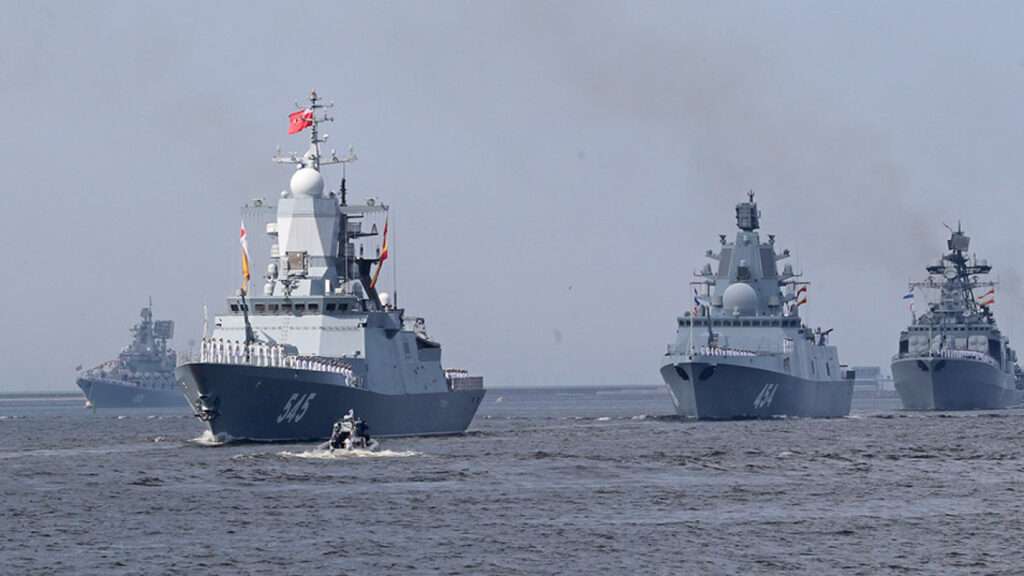History has shown that humanity does not learn from its past. On June 6, the world commemorated the 80th anniversary of D-Day, the historic Allied invasion of Normandy that marked the turning point in World War II.
This event was the largest naval assault in history, aimed at liberating Europe from the grip of Nazism and Fascism.
As the world reflects on this momentous occasion, it becomes apparent that the fundamental causes of World War II remain eerily relevant today.
World War II was fueled by a quest for power and global dominance. The Treaty of Versailles, economic instability, and nationalistic fervor created a fertile ground for Adolf Hitler’s rise to power.
His aggressive expansionist policies and the quest for Aryan supremacy set the stage for a devastating global conflict.
The war claimed millions of lives and left Europe in ruins, leading to the birth of the United Nations and a collective resolve to prevent such a catastrophe from recurring.
Yet, the end of World War II did not bring lasting peace. The Cold War emerged almost immediately, pitting the United States and its allies against the Soviet Union in a protracted ideological and geopolitical struggle.
This period was marked by proxy wars, nuclear arms races, and constant brinkmanship, only concluding with the Soviet Union’s collapse in 1991.
Fast forward to today, and history seems to be repeating itself. President Vladimir Putin’s ambition to restore Russia to its former Soviet-era glory has led to the invasion of Ukraine.
This conflict, which began in 2014 and escalated dramatically in 2022, could have been avoided through diplomatic negotiations.
Instead, the parties involved have decided to make bullets and shells do the talking with the West backing Ukraine in a bid to win the war over Russia.
Russia’s Warships To Arrive in Cuba
Cuban officials announced on Thursday, June 6 that four Russian ships, including a nuclear-powered submarine, will arrive in Havana next week. This comes as tensions rise over Western military support for Ukraine in its conflict with Russia.

The Cuban foreign ministry stated in a news release that the vessels will be in Havana from June 12 to June 17.
They emphasized that the ships will not carry nuclear weapons and assured that their presence “does not represent a threat to the region.”
This announcement follows statements from US officials, who revealed that Washington has been monitoring Russian warships and aircraft expected to arrive in the Caribbean for a military exercise.
According to these officials, the exercise is part of a broader Russian response to US support for Ukraine.
While acknowledging the significance of the Russian military presence, US officials indicated it was not a cause for concern.
Nevertheless, this maneuver comes as Russian President Vladimir Putin hints at potential “asymmetrical steps” globally in response to President Joe Biden’s decision to allow Ukraine to use US-supplied weapons to defend Kharkiv, Ukraine’s second-largest city.
The four Russian ships scheduled to visit Havana are the frigate “Gorshkov,” the nuclear-powered submarine “Kazan,” the fleet oil tanker “Pashin,” and the salvage tug “Nikolai Chiker,” according to Cuba’s foreign ministry.
In a ceremonial gesture, one of the ships will fire 21 salvos as a salute to the Cuban nation upon the fleet’s arrival at the port of Havana.
This salute will be met with a reciprocating artillery battery from Cuba’s Revolutionary Armed Forces, underscoring the strong ties between the two nations.
Last month, NATO carried out a joint military exercise in the Black Sea, an activity Russia saw as provocatory. While Russia’s presence in the Caribbean may not pose an immediate threat, it is very significant.
“Russia is saying I can also perform military drills in your [USA] backyard,” said a military analyst.
The ongoing Russia-Ukraine war raises the pressing question: When will humanity learn to say “enough is enough”?
Will it take another global conflict or a nuclear apocalypse to force the world to draw definitive lines against unnecessary flexing of military muscle?
As the echoes of history resound, it is imperative that global leaders seek peaceful resolutions to conflicts to avoid repeating the mistakes of the past.
READ ALSO: Ghana’s Gold Exports Surge Amid Declines in Crude Oil, Cocoa, and Timber



















